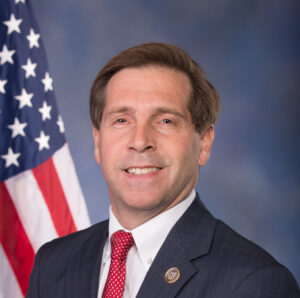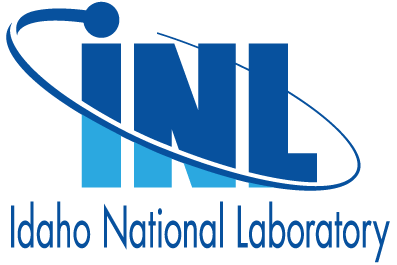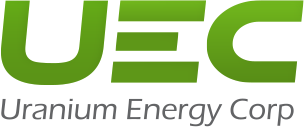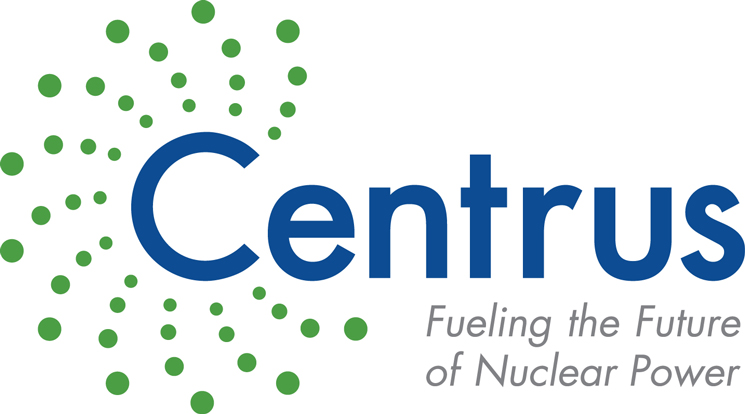2024 Agenda
Wednesday, June 26
-
7:00 am — 8:00 am
Networking Breakfast
-
8:00 am — 8:15 am
Welcome & Introductions
-
8:15 am — 9:00 am
Keynote: Global Perspective on Nuclear Energy
-
9:00 am — 9:45 am
Mega Trends in Nuclear Energy
The global imperative for reliable and secure energy is making headlines as technology’s electricity demand is skyrocketing, geo-political energy disruption threats are growing, net-zero carbon goals are expanding, and regulatory burdens inhibit development of transmission lines. As a result, the private sector in the U.S., our allies, and even our competitors, are investing in new generations of nuclear power to provide resilient and clean electricity and heat for a wide range of uses, from behind the meter generation to grid stabilization and assured power for critical national security and economic interests.
We’ll open the conference with an overview of the worldwide landscape in nuclear energy deployment and how geopolitics is altering the conversation, supply chains and prioritization of energy security, national or regional security, and climate outcomes.
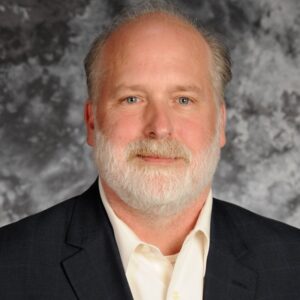 Jess Gehin, Ph.D.
Associate Laboratory Director, Nuclear Science & Technology
Idaho National Laboratory
Jess Gehin, Ph.D.
Associate Laboratory Director, Nuclear Science & Technology
Idaho National Laboratory
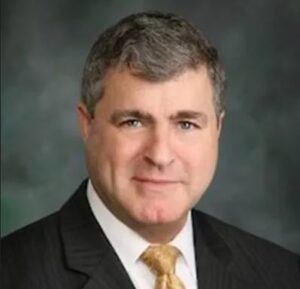 Lucian Niemeyer
Principal
UCAN Power
Lucian Niemeyer
Principal
UCAN Power
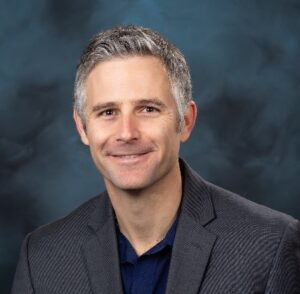 Michael Smith
Nuclear Portfolio Lead
Office of the Asst Secretary of Defense for Energy, Installations & Environment
Michael Smith
Nuclear Portfolio Lead
Office of the Asst Secretary of Defense for Energy, Installations & Environment
 Dominique Cooper
Director of Business Development
LeoLabs
Moderator
Dominique Cooper
Director of Business Development
LeoLabs
Moderator
-
9:45 am — 10:15 am
Networking Coffee Break
-
10:15 am — 11:00 am
State of the States in Nuclear Energy
Governors and state leaders are actively looking at the new opportunities for advanced nuclear deployments in supporting national security and energy resilience. As many as eight states have either expressed interest or made headway in being early deployers. Many of these states are also host to national defense critical infrastructure that would benefit from assured power supply. We will hear from state energy leaders about their efforts in deploying advanced nuclear, attracting supply chains and workforces, and the challenges they face.
 Ethel Bunch
Founder and CEO
Global to Local, LLC
Ethel Bunch
Founder and CEO
Global to Local, LLC
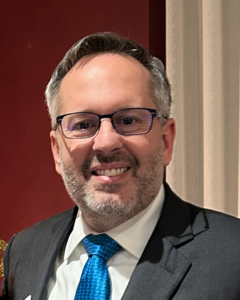 Glenn Davis
Director
Virginia Department of Energy
Glenn Davis
Director
Virginia Department of Energy
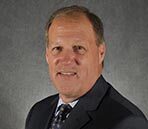 Jimmy Glotfelty
Commissioner
Public Utility Commission of Texas
Jimmy Glotfelty
Commissioner
Public Utility Commission of Texas
 Aaron Thiele
Legislative Assistant for Office of Lisa Murkowski
U.S. Senate
Aaron Thiele
Legislative Assistant for Office of Lisa Murkowski
U.S. Senate
 Brian McCormack
Principal
UCAN Power
Moderator
Brian McCormack
Principal
UCAN Power
Moderator
-
11:00 am — 12:00 pm
Competing in Emerging Nuclear Energy Markets
The United States is bringing its Government team to world nuclear events and meetings focused on capturing new and emerging energy markets with American clean and zero- emission nuclear energy technology and know-how. In addition to the US Department of Energy, the Department of State, Commerce and the US Trade and Development Agency are leading the early nuclear energy push to counter unallied nuclear energy competition coming from China and Russia.
This panel will detail emerging markets in Europe, Africa, Asia and the Americas and how US and Allied technology, architectural & engineering and consulting firms can play a key role in capturing key strategic nuclear energy markets for U.S. energy, economic and national security.
 Carol Berrigan
Executive Director for International Government Affairs & Supply Chain
Nuclear Energy Institute
Carol Berrigan
Executive Director for International Government Affairs & Supply Chain
Nuclear Energy Institute
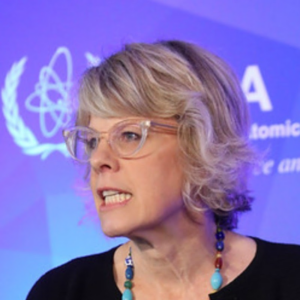 Kirsten Cutler, Ph.D.
Senior Strategist for Nuclear Energy Innovation
U.S. Department of State
Kirsten Cutler, Ph.D.
Senior Strategist for Nuclear Energy Innovation
U.S. Department of State
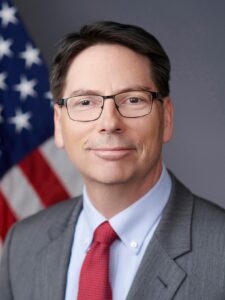 Carl Kress
Regional Director & Worldwide Energy Sector Team Leader
U.S. Trade and Development Agency (USTDA)
Carl Kress
Regional Director & Worldwide Energy Sector Team Leader
U.S. Trade and Development Agency (USTDA)
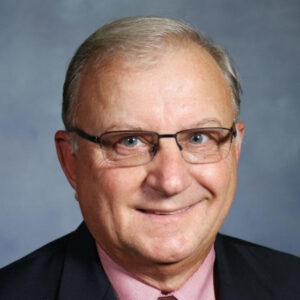 Ray Alexander
Senior Program Manager
Jacobs
Moderator
Ray Alexander
Senior Program Manager
Jacobs
Moderator
-
12:00 pm — 1:00 pm
Networking Lunch
-
1:00 pm — 1:45 pm
Understanding the U.S. Nuclear Regulatory Environment
This session offers an in-depth look at the current U.S. nuclear regulatory landscape, including an evolving regulatory framework Part 53 with an eye towards review of advanced nuclear technologies oversight mechanisms, and compliance challenges. Participants will hear from the Nuclear Regulatory Commission (NRC) leadership about recent regulatory updates, licensing procedures, and safety measures. The discussion will also address the impact of these regulations on the nuclear energy industry, including the development of new technologies and the maintenance of existing facilities. Attendees will leave with a clearer understanding of the regulatory requirements and best practices essential for operating within the U.S. nuclear sector.
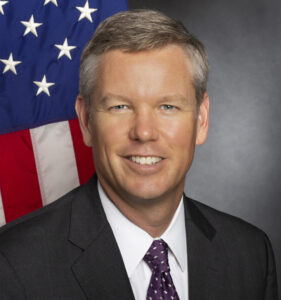 Honorable Christopher Hanson
Chair
U.S. Nuclear Regulatory Commission
Honorable Christopher Hanson
Chair
U.S. Nuclear Regulatory Commission
 Jeff Crater
Principal
UCAN Power
Moderator
Jeff Crater
Principal
UCAN Power
Moderator
-
1:45 pm — 2:30 pm
Cross-Border Collaboration on North American Nuclear Regulation
Representatives from leading North American utilities will discuss their role and collaboration in new nuclear energy expansion between Ontario Power Generation and the Tennessee Valley Authority. Attendees will gain insights into how these two pivotal entities are jointly working to develop and deploy advanced nuclear technology as part of broader efforts to achieve a carbon-free energy future.
Additionally, we hear how they are reducing the financial risks of innovating new technology, addressing the challenges and success through different regulatory regimes, and taking advantage of both companies’ nuclear experience. Specifically, we will learn more about the investment and progress in deployment of small modular reactors, focused on the GE-Hitachi Nuclear Energy BWRX-300 design, at their Darlington and Clinch River sites.
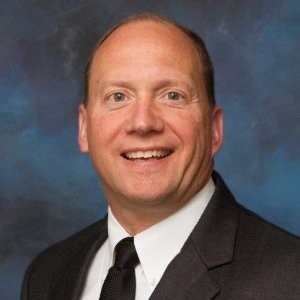 Greg Boerschig
Vice President, Clinch River Project
Tennessee Valley Authority
Greg Boerschig
Vice President, Clinch River Project
Tennessee Valley Authority
 David Tyndall, P.Eng.
Director, New Nuclear Technologies
Ontario Power Generation
David Tyndall, P.Eng.
Director, New Nuclear Technologies
Ontario Power Generation
 Niko McMurray
Managing Director, International & Nuclear Policy
ClearPath
Moderator
Niko McMurray
Managing Director, International & Nuclear Policy
ClearPath
Moderator
-
2:30 pm — 3:00 pm
Networking Break
Sponsored by:
-
3:00 pm — 4:00 pm
Energy Resilience in a Contested Environment - Department of Defense Programs for Advanced Nuclear Power
The Department of Defense has committed significant resources to enhance energy assurance, resilience, and sustainability for military forces by developing programs to unleash capabilities from the tether of contested fuel supplies and delivery around the world. Two distinct programs are committed to the deployment of advanced nuclear power reactors to reduce the reliance on commercial power or legacy generation for both domestic military bases and in overseas contingencies. This panel of experts will discuss the challenges faced to meet warfighter power and thermal needs, and update the audience on the progress of programs to meet those needs with nuclear reactor generation.
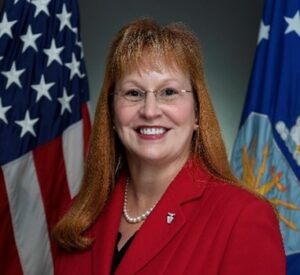 Nancy Balkus, P.E., SES
Deputy Assistant Secretary (Infrastructure, Energy and Environment)
U.S. Air Force
Nancy Balkus, P.E., SES
Deputy Assistant Secretary (Infrastructure, Energy and Environment)
U.S. Air Force
 Annie Kammerer, Ph.D.
Chief of the Nuclear Power Branch, Office of the Chief of Engineers
U.S. Army (Headquarters)
Annie Kammerer, Ph.D.
Chief of the Nuclear Power Branch, Office of the Chief of Engineers
U.S. Army (Headquarters)
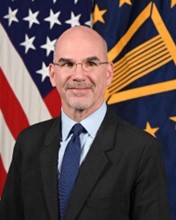 Michael McGhee
Deputy Assistant Secretary for Energy (Acting)
U.S. Navy
Michael McGhee
Deputy Assistant Secretary for Energy (Acting)
U.S. Navy
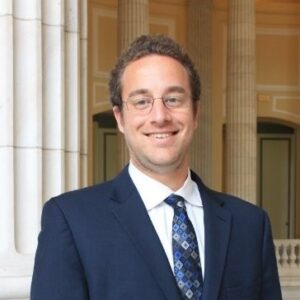 Jeff Waksman, Ph.D.
Program Manager
Strategic Capabilities Office, Department of Defense
Jeff Waksman, Ph.D.
Program Manager
Strategic Capabilities Office, Department of Defense
 Lucian Niemeyer
Principal
UCAN Power
Moderator
Lucian Niemeyer
Principal
UCAN Power
Moderator
-
4:00 pm — 5:00 pm
Behind the Meter: Nuclear Energy for Tech and Industrial Applications
Explore the cutting-edge applications of nuclear energy beyond its traditional role in power generation, focusing on its role in high tech, including data center and more specifically AI power demands and industrial sectors. Industry leaders and experts will discuss electrical and industrial heat applications as well as the challenges of adopting nuclear solutions in various industries. This session aims to broaden the understanding of nuclear energy’s potential and foster discussions on leveraging this power source for a wide range of high tech and industrial applications.
 Maxim Serezhin
Chief Executive Officer
Standard Power
Maxim Serezhin
Chief Executive Officer
Standard Power
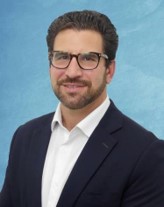 Richard Springman, Ph.D.
President of Global Clean Energy Opportunities
Holtec International
Richard Springman, Ph.D.
President of Global Clean Energy Opportunities
Holtec International
 Ken Urquhart, Ph.D.
Global Vice-President of 5G/Edge/Satellite
Zscaler
Ken Urquhart, Ph.D.
Global Vice-President of 5G/Edge/Satellite
Zscaler
 Brian McCormack
Principal
UCAN Power
Moderator
Brian McCormack
Principal
UCAN Power
Moderator
-
5:00 pm — 6:30 pm
Networking Reception
Thursday, June 27
-
7:30 am — 8:30 am
Networking Breakfast
-
8:30 am — 9:00 am
Keynote: A Leading Congressional Perspective on Nuclear Energy
The Honorable Mike Waltz, Congressman from the Sixth Congressional District of Florida, serves as the Chairman of the U.S. House Armed Services Subcommittee on Readiness. This is the lead subcommittee on the Armed Services Committee that focuses on military preparedness and readiness including energy resiliency at each military base and forward in theater. As a retired Colonel in the National Guard, a combat decorated Green Beret, and former White House and Pentagon policy advisor, Congressman Waltz brings specific knowledge and experience about our military needs to meet its readiness requirements including energy resiliency.
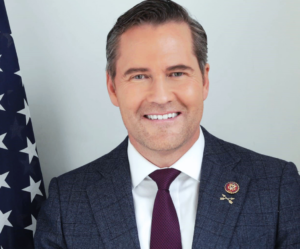 U.S. Congressman Mike Waltz (FL-6)
Chairman
U.S. House Committee Armed Services, Subcommittee on Readiness
U.S. Congressman Mike Waltz (FL-6)
Chairman
U.S. House Committee Armed Services, Subcommittee on Readiness
 Brian McCormack
Principal
UCAN Power
Moderator
Brian McCormack
Principal
UCAN Power
Moderator
-
9:00 am — 9:45 am
Financing for Nuclear Energy
EXIM Bank leadership will highlight EXIM’s commitment to advancing Biden-Harris administration priorities and opportunities to support U.S. exporters in the nuclear energy sector, including emerging nuclear energy markets in Europe, Asia and Africa
The U.S. International Development Finance Corporation (DFC) as the successor agency to the Overseas Private Investment Corporation (OPIC) partners with the private sector to “finance solutions to the most critical challenges facing the developing world today, while advancing American foreign policy and American commercial competitiveness”. DFC reversed a longstanding ban in 2020 to fund civilian nuclear energy projects that now will help increase global energy security to help meet emissions reduction goals while providing reliable baseload generation with nuclear power.
DOE’s Loan Programs Office (LPO) will review its latest financial support for the transition to a clean energy economy with access to debt capital that can be used to support advanced nuclear projects.
 Tom Haslett
Director, Energy and Critical Minerals Policy
U.S. International Development Finance Corporation
Tom Haslett
Director, Energy and Critical Minerals Policy
U.S. International Development Finance Corporation
 Julie Kozeracki
Director of Strategy
US-DOE Loan Programs Office
Julie Kozeracki
Director of Strategy
US-DOE Loan Programs Office
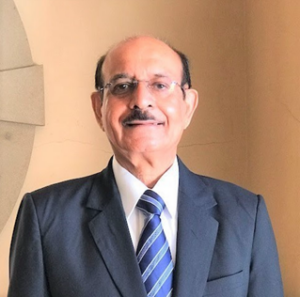 Ashok Pasricha
Managing Director, Engineering and Environment Division
Export-Import Bank of USA
Ashok Pasricha
Managing Director, Engineering and Environment Division
Export-Import Bank of USA
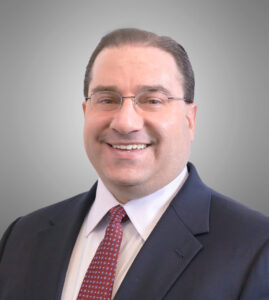 Paul Murphy
Managing Director Nuclear, Co-Head of Public Finance & Government Relations
Cross River Infrastructure Partners
Moderator
Paul Murphy
Managing Director Nuclear, Co-Head of Public Finance & Government Relations
Cross River Infrastructure Partners
Moderator
-
9:45 am — 10:15 am
Networking Coffee Break
-
10:15 am — 11:00 am
Ensuring Continuity: Secure Nuclear Supply Chains from Mining to Fuel, Leveling the Playing Field with Russia and China
Industry experts and policymakers will tackle the essential aspects of security and sustainability in the nuclear supply chain, from uranium mining and manufacturing to fuel fabrication in the United States and among its allies. Russian and Chinese market dominance has compelled the U.S. and its allies to align and pursue emerging markets more strategically or cede those strategic nuclear energy markets for the next century or more to less democratic institutions.
Attendees will gain insights into the global dynamics of uranium supply, advancements in manufacturing safety, and the complexities of fuel supply logistics. The discussion will also cover regulatory challenges, international cooperation, and best practices for securing supply chains against geopolitical, environmental, and market uncertainties. This session aims to foster a comprehensive understanding of the secure nuclear supply chain’s role in ensuring the reliable and safe operation of nuclear energy facilities worldwide.
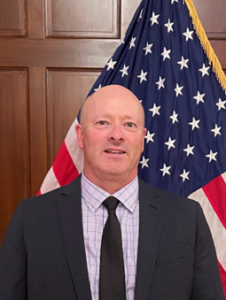 Jon Carmack, Ph.D.
Deputy Assistant Secretary
Office of Nuclear Energy, U.S. Department of Energy
Jon Carmack, Ph.D.
Deputy Assistant Secretary
Office of Nuclear Energy, U.S. Department of Energy
 Corey McDaniel, Ph.D
Northwest Regional Manager
Kiewit Nuclear Solutions
Corey McDaniel, Ph.D
Northwest Regional Manager
Kiewit Nuclear Solutions
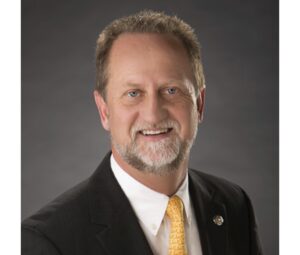 Scott Melbye
President, Uranium Producers of America & Executive Vice President
Uranium Energy Corporation
Scott Melbye
President, Uranium Producers of America & Executive Vice President
Uranium Energy Corporation
 Rowen Price
Policy Advisor for Nuclear Energy in the Climate and Energy Program
Third Way
Rowen Price
Policy Advisor for Nuclear Energy in the Climate and Energy Program
Third Way
 Amir Vexler
President & Chief Executive Officer
Centrus Energy
Amir Vexler
President & Chief Executive Officer
Centrus Energy
 Jeff Crater
Principal
UCAN Power
Moderator
Jeff Crater
Principal
UCAN Power
Moderator
-
11:00 am — 11:45 am
Global Nuclear Energy Security Among U.S. Allies
Representatives from allied nuclear countries will discuss the strategic role of nuclear energy in national security, supply reliability, and achieving net-zero goals. They will also explore the impacts of recent geopolitical shifts on global nuclear energy strategies. Attendees will gain insights into the interconnected challenges and collaborative opportunities shaping the nuclear energy landscape among U.S. allies.
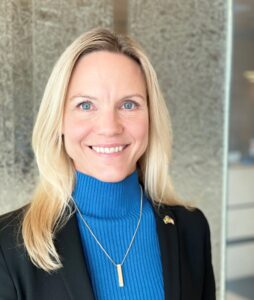 Maria Brogren, PhD.
Counselor for Science and Innovation
Embassy of Sweden
Maria Brogren, PhD.
Counselor for Science and Innovation
Embassy of Sweden
 Ana-Maria Petrescu
Political Affairs Officer
Embassy of Romania
Ana-Maria Petrescu
Political Affairs Officer
Embassy of Romania
 Craig Weichel
Counsellor, Program Manager (Environment & Energy)
Embassy of Canada
Craig Weichel
Counsellor, Program Manager (Environment & Energy)
Embassy of Canada
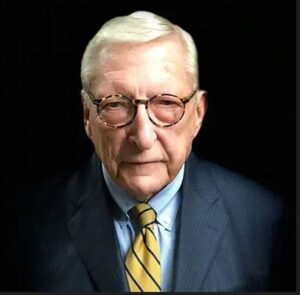 Theodore J. Garrish
President
UCAN Power
Moderator
Theodore J. Garrish
President
UCAN Power
Moderator
-
11:45 am — 12:30 pm
The Final Frontier: Space Nuclear Propulsion and Power
As the U.S. plans for the future of space operations, experts foresee an increasing operational need for nuclear propulsion to lift systems between and beyond current orbits, and nuclear reactors to provide both life-sustaining power and thermal capabilities in space and on the Moon. Today, NASA, The Defense Advanced Research Projects Agency, and the U.S. Air Force are all leading innovative programs to develop nuclear thermal propulsion, nuclear electric propulsion, and fission surface power technologies.
This panel will briefly review America’s history with nuclear space technology programs, provide updates on current development efforts, and seek to understand how these next generation programs will be critical to meet our long-term space defense, exploration, and habitation goals. Further, the panel will explore the role of the private sector, and ask the question: is the development of space nuclear propulsion and power technologies a purely government activity, or is there a commercial market for such technologies?”
 Anthony Calomino
Program Manager, Space Nuclear Fission Technology Product Development
NASA
Anthony Calomino
Program Manager, Space Nuclear Fission Technology Product Development
NASA
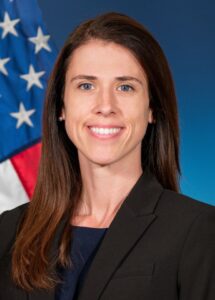 Tabitha Dodson, Ph.D.
Program Manager Defense Sciences Office
Defense Advanced Research Projects Agency (DARPA)
Tabitha Dodson, Ph.D.
Program Manager Defense Sciences Office
Defense Advanced Research Projects Agency (DARPA)
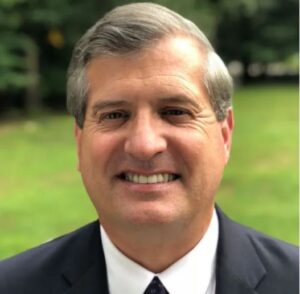 Jim Howe, Ph.D.
Principal
UCAN Power
Jim Howe, Ph.D.
Principal
UCAN Power
 Lucian Niemeyer
Principal
UCAN Power
Moderator
Lucian Niemeyer
Principal
UCAN Power
Moderator
-
12:30 pm
Summit Ends


